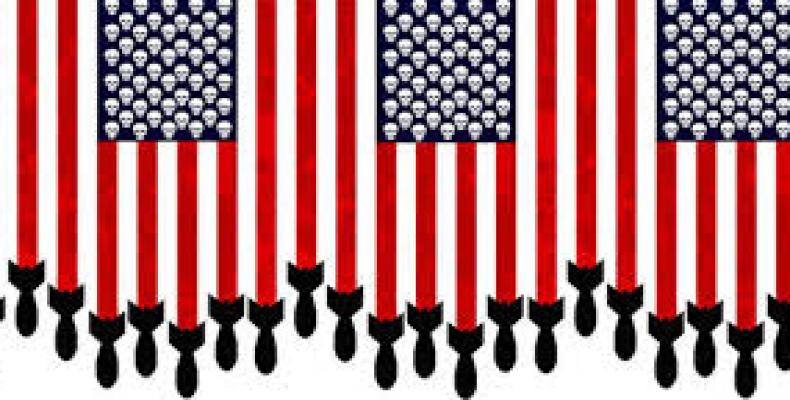Cuba accused by the world’s greatest sponsor of terrorism of not cooperating in fighting terrorism
By Charles McKelvey
May 16, 2020
The United States Department of State has included Cuba on its list of states that are not cooperating fully with U.S. counterterrorism efforts. The pretext for the U.S. action is that Cuba has refused the request of the Colombian government to extradite ten leaders of the Army of National Liberation who traveled to Havana to participate in peace talks with the Colombian government in 2017, who now are living in Havana. In 2017, Cuba sponsored peace talks between the government and the Revolutionary Armed Forces of Colombia (FARC), which were signed by both parties. However, with a change in government in Colombia, the implementation of the peace accord has confronted complexities.
In addition, the State Department asserts that Cuba is harboring U.S. fugitives from justice, wanted on charges of political violence dating to the 1970s. With respect to this accusation, the government of Cuba declared in 2014 that “some of these citizens were granted asylum legitimately, while others committed crimes in the United States, were duly judged and punished, and decided to reside in Cuba following the completion of their sentences.”
Countries placed on the list are prohibited from exporting defense articles and services. Also included on the list, in addition to Cuba, are Iran, North Korea, Syria, and Venezuela. As is evident, these are countries that resist U.S. imperialist policies and pretensions.
The list of countries not cooperating fully with U.S. counterterrorism efforts is different from the U.S. Department of State’s list of state sponsors of terrorism, which are countries that the U.S. government deems “to have repeatedly provided support for acts of international terrorism.” Cuba had been placed on said list in 1982, because of its support for revolutionary movements in the Third World, which the U.S. government arbitrarily designated as terrorist. Cuba was removed from the list of nations that sponsor terrorism in 2015, during the Obama opening toward Cuba. Because countries on this list are restricted with respect to financial transactions, which has led to fines being imposed on U.S. banks and financial institutions as well as those of third countries, the list of countries that sponsor terrorism has a much greater impact than the list of countries that do not fully cooperate with U.S. counterterrorism. Countries presently on the U.S. Department of State list of “state sponsors of terrorism” are North Korea, Iran, Sudan, and Syria.
U.S. aggressiveness toward Cuba has its logic, if one assumes that U.S. foreign policy should seek to preserve U.S. economic penetration in various regions of the world in the context of a neocolonial world-system. However, the sustained structural crisis of the world-system since the 1970s, and the aggressive reaction to the crisis by the global powers, has demonstrated that the neocolonial world-system is not longer sustainable. In this situation of sustained global crisis, U.S. interests would be better served by a policy of cooperation with the nations of the world, in a context in which the sovereignty of all nations is respected.


